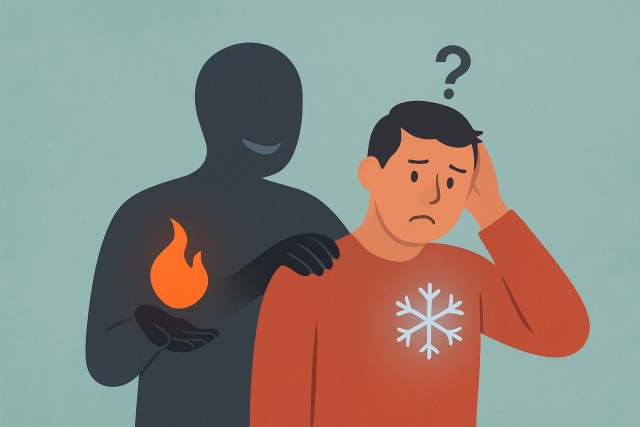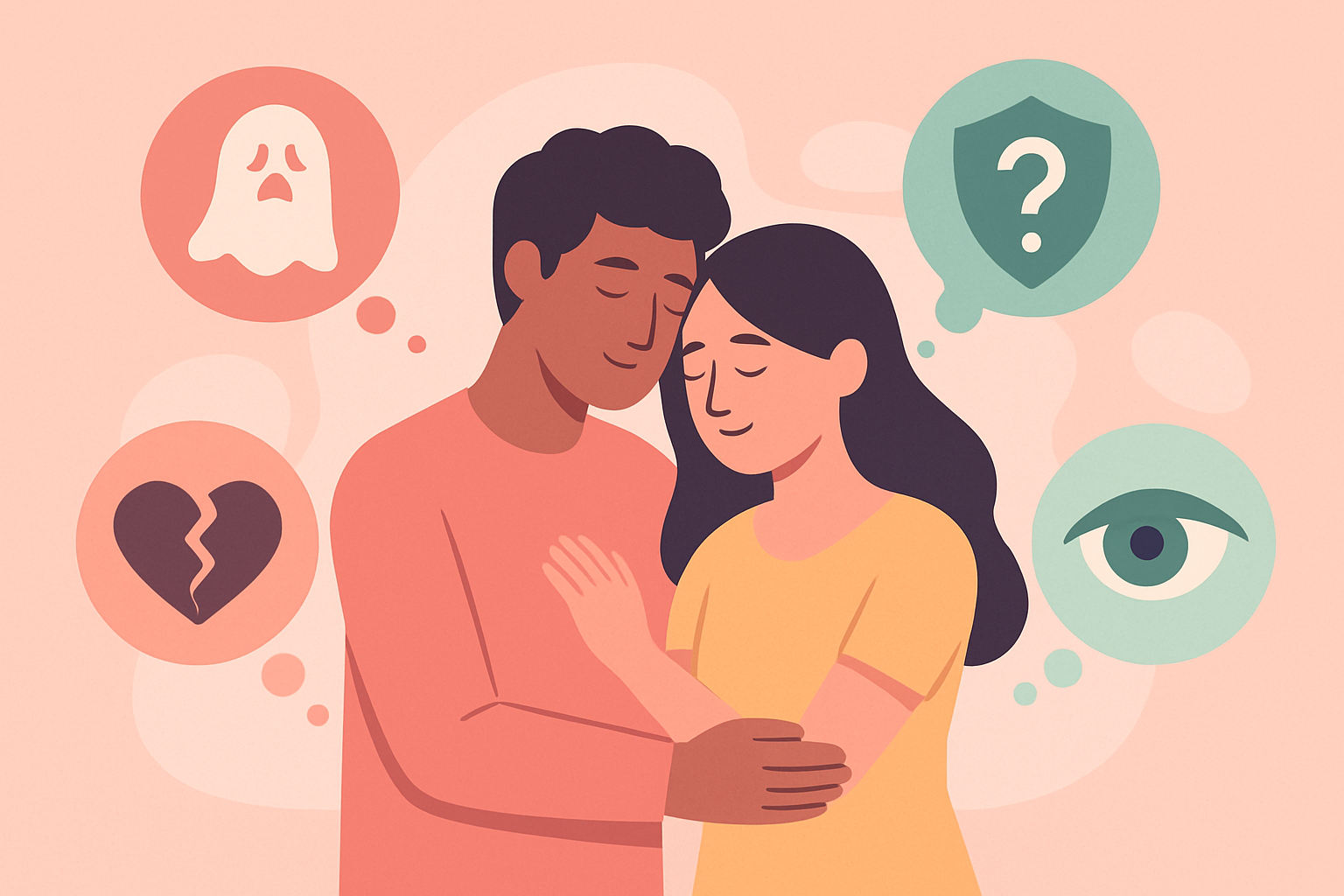
Weird Things Covert Narcissists Do To Manipulate Others
Covert narcissists use bizarre, subtle tactics to manipulate and control. Learn how to spot these we...
Insecurities in a relationship often sneak in and quietly shape how partners see themselves and each other, subtly muddying communication and trust. They usually stem from past experiences or lingering fears and unspoken doubts that if left unchecked create emotional distance or tension. By spotting these common relationship insecurities and exploring their origins, partners can team up to carve out a safer and more trusting space where vulnerabilities aren’t just ignored or brushed aside.
Insecurities in a relationship are nagging feelings of doubt or low confidence about yourself or the connection you share with your partner. They often sneak in as worries about being left out in the cold or jealousy rearing its head, self-doubt creeping in or a general mistrust that clouds the air.
Insecurities have a sneaky way of popping up in our day-to-day interactions often when we least expect them. Take, for example, that fear of being left behind—it can turn someone into a clingy mess. Then there’s jealousy quietly planting seeds of doubt over innocent social moments. Low self-esteem shows itself in constant apologizing or suddenly pulling back like someone hit the brakes. Anxiety around communication can make even the bravest avoid tough but important conversations.

Insecurities in relationships often sprout from past experiences and personal beliefs shaped long before the current partnership began. Childhood attachments, family dynamics, and previous romantic encounters all influence how we perceive safety and trust in love. Societal expectations and a person’s self-worth create a tangled mix of history and present reality that fuels uneasy feelings.
Attachment theory reveals how early ties with our caregivers set the stage for relationships down the road. A secure attachment typically breeds trusting and well-balanced bonds—the kind we all secretly hope for. On the flip side, anxious attachment stirs up fears of being left out and keeps you on high alert like waiting for the other shoe to drop. Avoidant attachment shows itself through emotional distance and a knack for dodging intimacy, almost like keeping the heart behind a locked door. Then there’s disorganized attachment which tosses conflicting behaviors into the mix and leads to a whirlwind of confusion and instability. Taking the time to understand your attachment style can shed light on why certain insecurities pop up.
Past relationships marked by betrayal, infidelity or neglect tend to leave emotional scars that linger and often cast a long shadow over trust in future partners.
"Insecurities often sprout from old fears that never quite got their day in court, rather than what is genuinely unfolding in the here and now of the relationship. Recognizing this subtle but key difference is usually the first step toward building trust and starting the slow, sometimes messy work of healing."
These signs often start a tricky cycle that affects not just one partner but the health of the entire relationship. Take jealousy for example; it tends to increase tension and push people apart. Constantly fishing for reassurance can emotionally drain both parties involved. Once communication hits a snag, misunderstandings and unresolved conflicts usually follow.
Catching insecurities early on can really save a lot of heartache down the road by preventing them from spiraling into unhealthy patterns that chip away at trust and closeness. When you take the time to understand these underlying fears, it opens the door to clearer communication and sparks a genuine sense of empathy—helping both partners feel truly seen and supported.
Overcoming insecurities is a journey that calls for self-awareness, honest conversations and a solid support system between partners. When both people focus on their own growth and pull together as a team, those nagging fears start to loosen their grip and trust begins to rebuild piece by piece.
Each step calls for a bit of patience and a sprinkle of practice. For example, when diving into open conversations, it’s best to avoid blaming and share your feelings using "I" statements like "I feel anxious when...". That small shift can change the whole vibe. Building self-awareness means sitting down with a journal or reflecting on moments when insecurity tends to creep in uninvited. Boosting self-esteem can be as simple as repeating affirmations or exploring hobbies that remind you of your worth beyond the relationship. Setting boundaries is key because it respects individual needs and keeps resentment from piling up.
Professional support often turns out to be a real lifesaver when the insecurities in a relationship spark ongoing conflicts or cause emotional pain. Trust issues can throw a serious wrench into the partnership. You might notice the usual suspects: constant jealousy like an uninvited guest, pulling away, communication hitting a dead end or the shadow of overwhelming past trauma. Therapists and counselors provide a safe space to untangle these knots and craft personalized strategies for healing and moving forward.

Covert narcissists use bizarre, subtle tactics to manipulate and control. Learn how to spot these we...

Intimacy disorder disrupts the ability to connect emotionally and physically, often causing confusio...

Struggling with relationships that always seem to fail? Learn what self-sabotaging relationships rea...

Discover the diverse types of relationships that influence our lives, from family and friendships to...